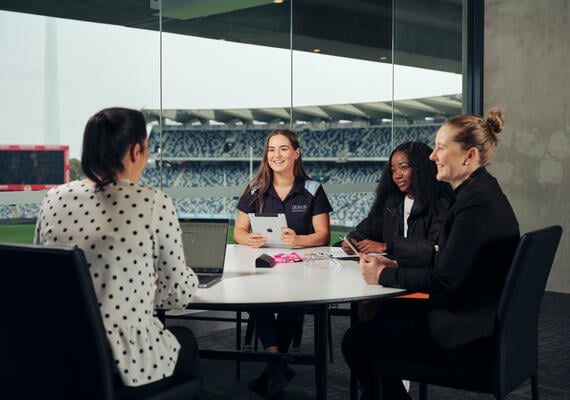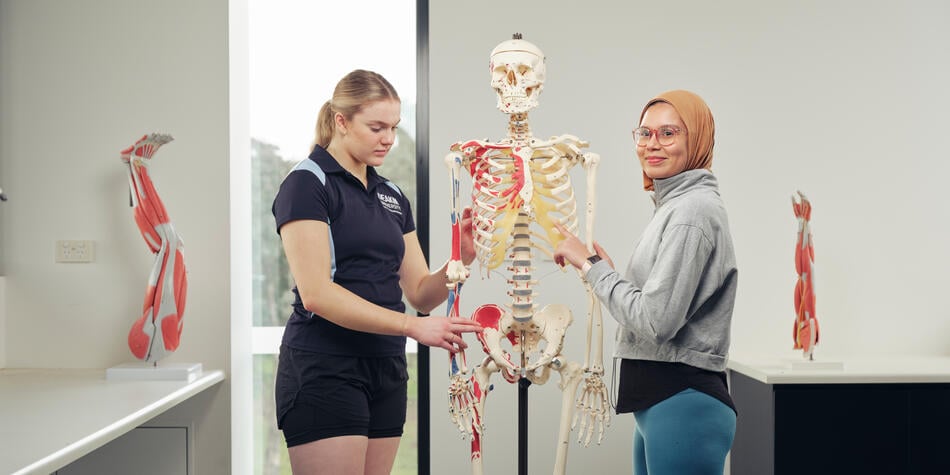Dr Danielle Trowell’s successful biomechanics career is proof that it pays to take chances and keep an open mind when it comes to specialisations.
For Danielle, a practitioner and educator in biomechanics, sport’s always been a big part of life. In fact, one of her earliest memories is of being in creche at a netball centre while her mum played. ‘I grew up around sport. I did little athletics and Netta from when I was about six, then track and field and netball until I was 18 years old. After that I continued with track, as a middle-distance runner,’ she says. ‘I always wanted to work in sport, and I knew I wasn't going to be an athlete. So, I think [my career] is a really great way for me to continue to be involved.’
She’s certainly managed to stay involved in sport. These days, she’s a biomechanist at the Victorian Institute of Sport and an associate lecturer in biomechanics at Deakin University.
Helping both athletes and students achieve their best
After finishing high school, Danielle completed a Bachelor of Exercise and Sport Science/Bachelor of Business (Sport Management) at Deakin University. She went on to complete her Honours at Deakin, followed by an industry-based PhD through a partnership between Deakin and the Australian Institute of Sport. She now holds a unique role encompassing teaching, clinical practice and research.
As a biomechanics professional, Danielle’s work involves analysing a sportsperson’s movements to maximise performance while minimising injury. A typical week for her now includes teaching at Deakin, providing online support for students, attending athlete training sessions and competitions and analysing the output, and working on research projects in her spare time.
‘For the first four months of the year, the track and field competitions alternate between different states. So, for the first four months of the year, I pretty much travel most weekends. I'll go interstate to attend a track and field competition where I'll film the athletes. And then when I come home from that competition I’ll do the reports, process the video and do data analysis for them – looking at technique and how they can improve.’


